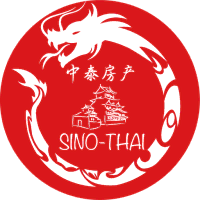Once again I would like to talk about property taxes in Thailand.
Taxes when purchasing real estate.
There are two types of ownership: leasehold and freehold.
So, leasehold is a long-term or, as many say, lifelong lease with the right of resale and inheritance, where in the contract you will be indicated as the Tenant, and the developer as the Lessor. By law, you can purchase the property for a maximum period of 30 years, but with two extensions of 30 years each, meaning you will own the property for 90 years. Some developers offer leasehold for 120 years and even unlimited renewal. This is all certified at the legislative level and many people buy real estate on leasehold because it is more profitable. Actually, about the benefits – the cost of real estate in leasehold is lower by an average of 7-10%. Accordingly, the payback is faster. Also, the interest rate of taxes upon registration is only 1.1% of the contract value of the object. At the time of registration you must pay 0.1% stamp duty and 1% title tax. I would like to note one more important detail. It has already happened that taxes are paid in half by the buyer and the seller, so most of the developers will take on half and you, as the buyer, will need to pay only 0.55% of the value of the property in order to register the leasehold right in your name. In the future, no matter in a month or 10 years, after owning this property, you will also have this tax, which you can share with the buyer.

Freehold – full perpetual ownership. Once purchased, you are the owner forever. Most likely, you now have a question – why buy real estate in leasehold, if the advantages of freehold are obvious. The answer is that a freehold is more expensive (usually the developer charges an average of 300 thousand baht for registration of a freehold) and taxes upon registration are higher. For those buying property as a short or medium term investment this is a key factor. As I said earlier, the price for freehold will be 7-10% higher. As for taxes, it turns out the following: upon registration, you will need to pay a tax for registering property rights of 2% (transfer fee), a special business tax of 3.3% (specific business tax), a stamp duty of 0.5% (duty stump) and also the so-called income tax 1% (withholding tax). This adds up to a large surcharge for full ownership. But, as in the case of a leasehold, the developer will most likely offer to pay these taxes 50/50, and in some cases you will be asked to pay only a 2% tax for registering the right and that’s all. Which makes purchasing into a freehold more attractive.
In general, this is the basic information you need to know about the types of property in the Kingdom of Thailand. In both cases, no matter whether it is a freehold or a leasehold, you will receive a document for the property (Chanot). And in both cases, you can resell this property, give it as a gift, inherit it, etc.

Taxes when renting out real estate.
So, you have already purchased property in Thailand. If you bought an apartment or villa for rent, you should know that you can rent out your property on a monthly basis. To rent for a shorter period, you must have a hotel license. But don’t be upset – many homeowners and rental management companies also rent out their properties on a daily basis. Thai regulatory authorities are quite loyal in this matter. But it’s better to pay income tax so as not to have problems with the Thai tax service. For residents, the tax will be 5%, for non-residents – 15% of the profit received. If a management company is engaged in renting for you, then it usually pays this tax for you, deducting it from the money transferred to the owner of the property. Obtaining a resident certificate in Thailand is not difficult or expensive, but this is a separate topic. A resident can receive income from the rental of real estate into his Thai bank account, and a non-resident can receive this income into an account outside Thailand.
 Sino Thai
Sino Thai